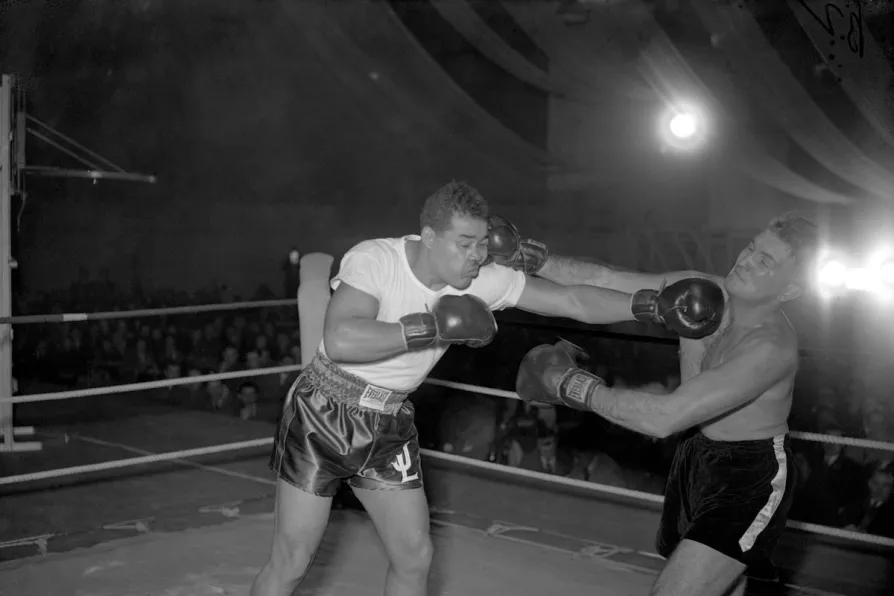
 CLASH: South African boxer Phil van Niekerk (right) lands a right hook to the head of Joe Louis in London in 1948
CLASH: South African boxer Phil van Niekerk (right) lands a right hook to the head of Joe Louis in London in 1948
FEW writers understood America’s racist soul as keenly as Richard Wright, and few used their pen as mercilessly as he did as a weapon to excoriate and expose it. In black heavyweight champion and ring legend, Joe Louis, Wright found the perfect symbol of black resistance to the conceits of a dominant culture wallowing in the abyss of white supremacy and in and through him perfect fodder for his own detestation of it. Wright’s treatment of Louis’s exploits in the ring and importance outside it combined to forge an unbeatable vector of resistance to that culture.
Wright was born in 1904, the son of a sharecropper in Mississippi in the Deep South. Slavery had only ended four decades earlier, and white supremacy had by then physically reasserted itself in the shape of the Ku Klux Klan and socially under the rubric of Jim Crow, a system of apartheid that was to hold sway across the South all the way up into to the 1960s.
By the time Wright relocated to the south side of Chicago in 1927, he was ready to make his mark as a writer and radical black voice at a time when metropolises such as Chicago, New York, Boston, Detroit and San Francisco were alive with left-wing and radical ideas, providing hope for social and political transformation at a time when Soviet communism still stood as a beacon to the poor and the marginalised and oppressed across the world.

After Zohran Mamdani’s electoral win, BHABANI SHANKAR NAYAK points to the forgotten role of US communists in New York’s radical politics

When Patterson and Liston met in the ring in 1962, it was more than a title bout — it was a collision of two black archetypes shaped by white America’s fears and fantasies, writes JOHN WIGHT

JOHN WIGHT tells the riveting story of one of the most controversial fights in the history of boxing and how, ultimately, Ali and Liston were controlled by others










